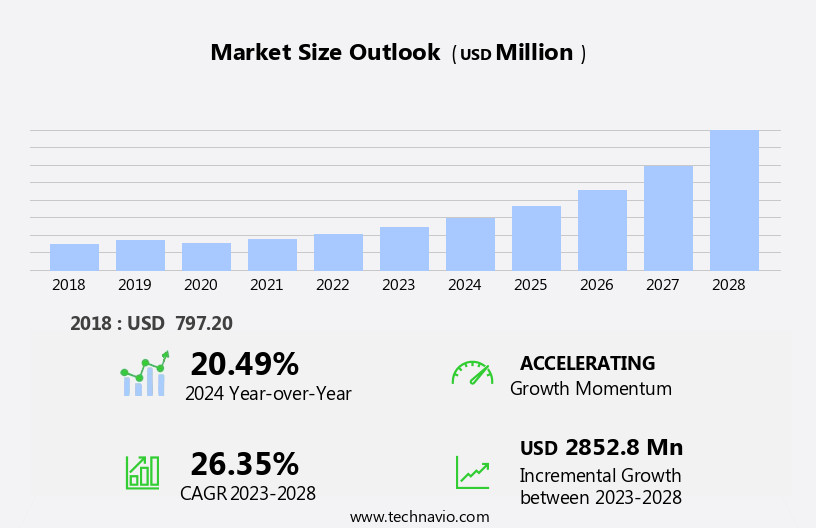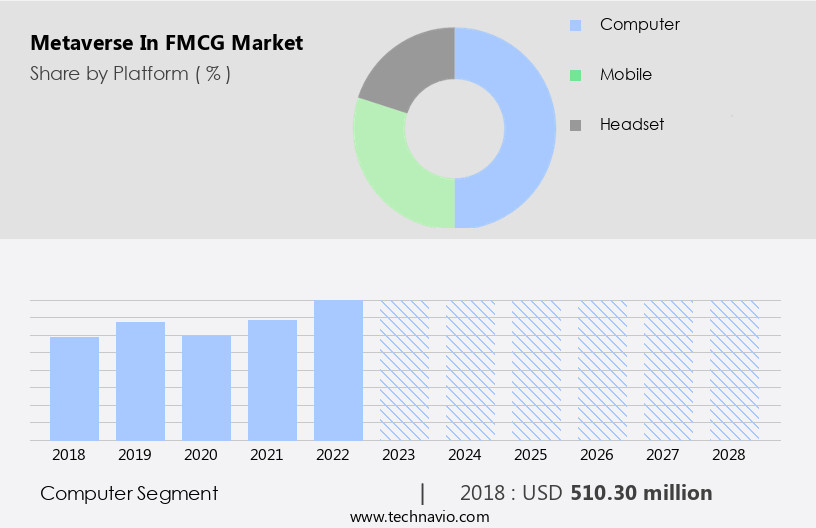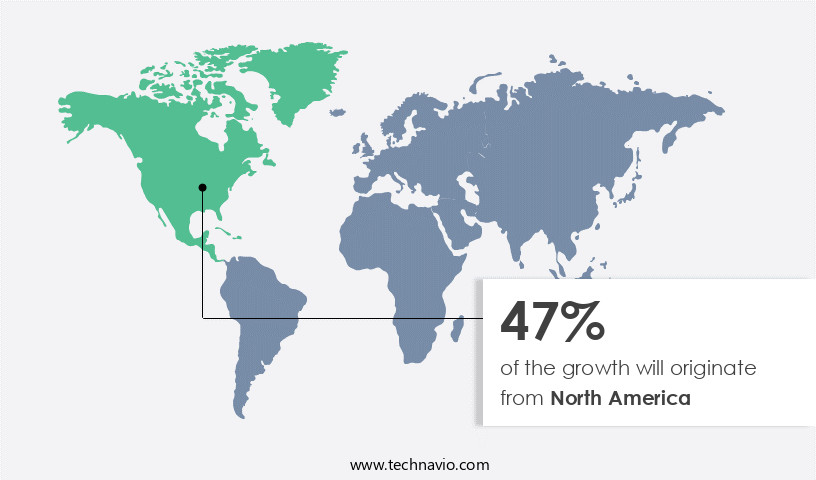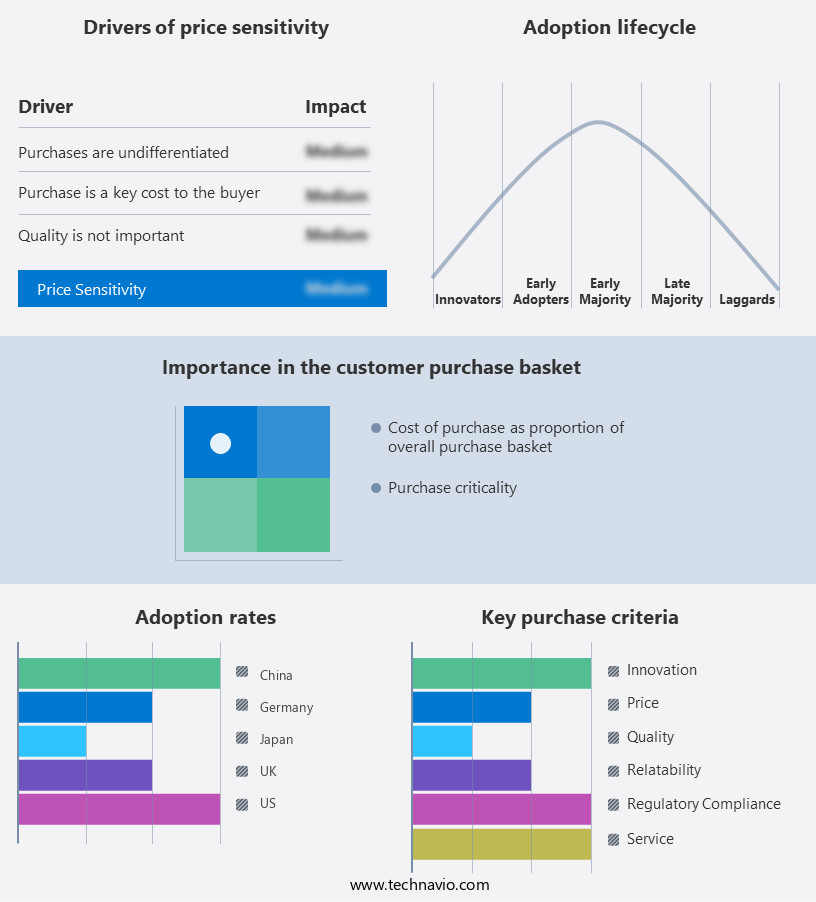Metaverse In FMCG Market Size 2024-2028
The metaverse in FMCG market size is forecast to increase by USD 2.85 billion at a CAGR of 26.35% between 2023 and 2028.
- In the evolving digital landscape, the FMCG sector is embracing the metaverse, a virtual world where users can interact with each other and digital content. Key FMCG categories, such as herbal cosmetics and Irish whiskey, are capitalizing on this trend by creating a virtual presence. Blockchain technology is being utilized to ensure the authenticity and traceability of products, from virtual labels on glass displays to digital content. Brands are hosting virtual events, offering unique experiences, and utilizing augmented and virtual reality to engage consumers. The metaverse market is witnessing an increase in growth due to the increasing popularity of social networking and real estate in this virtual space. However, privacy and security concerns remain a challenge, requiring strong solutions to protect consumer data. Overall, the FMCG industry's strategic imperatives In the metaverse are transforming e-commerce, creating new opportunities for innovation and growth.
What will be the Size of the Metaverse In FMCG Market During the Forecast Period?
- The metaverse, a collective virtual space where users can interact with digital objects and real people, is gaining significant traction In the Fast-Moving Consumer Goods (FMCG) market. This burgeoning digital landscape, encompassing multiverse platforms, computer, mobile, and headset environments, offers unique opportunities for businesses to engage consumers in new and enriching ways. With increasing internet penetration and the rise of electronic commerce, the metaverse presents a vast marketplace for goods and services, enabling business transactions through various payment methods. The metaverse's virtual world, underpinned by advanced technology such as augmented reality and virtual reality, allows for stronger customer engagement.
- A recent Shopkick survey revealed that 72% of consumers are open to purchasing products in virtual environments. The integration of non-fungible tokens and the sale of digital objects in metaverse marketplaces adds another layer of potential revenue streams for FMCG companies. Despite the potential, challenges remain, including security concerns due to the inherent risks associated with computer platforms and hackers. As the metaverse continues to evolve, it is essential for FMCG businesses to adapt and explore this new frontier to remain competitive and cater to the changing consumer preferences.
How is this Metaverse In FMCG Industry segmented and which is the largest segment?
The metaverse in FMCG industry research report provides comprehensive data (region-wise segment analysis), with forecasts and estimates in "USD billion" for the period 2024-2028, as well as historical data from 2018-2022 for the following segments.
- Platform
- Computer
- Mobile
- Headset
- Geography
- North America
- US
- Europe
- Germany
- UK
- APAC
- China
- Japan
- Middle East and Africa
- South America
- North America
By Platform Insights
- The computer segment is estimated to witness significant growth during the forecast period.
The market witnessed significant growth in 2023, with computers leading the market share. The expanding internet penetration facilitated this growth, as PCs offer a more enriching shopping experience for consumers. Despite the widespread use of mobile platforms, the computer segment dominates in terms of time spent online. Metaverse platforms in FMCG enable customers to explore a vast array of goods and services, compare prices, and complete transactions from their desktop computers. This convenience, coupled with the faster internet connection, will propel the computer segment's growth in the forecast period. Virtual marketplaces offer a unique customer experience, driving stronger engagement and increased conversion rates.
Get a glance at the market report of share of various segments Request Free Sample
The computer segment was valued at USD 510.30 million in 2018 and showed a gradual increase during the forecast period.
Regional Analysis
- North America is estimated to contribute 47% to the growth of the global market during the forecast period.
Technavio's analysts have elaborately explained the regional trends and drivers that shape the market during the forecast period.
For more insights on the market size of various regions, Request Free Sample
The presence of key companies such as Meta Platforms, Inc., and NVIDIA Corp., growing investments in AR technology from key companies, a rise in the adoption of applications that are technologically advanced, and strong research activities to increase the application of metaverse will facilitate the metaverse in FMCG market growth in North America over the forecast period. This market research report entails detailed information on the competitive intelligence, marketing gaps, and regional opportunities in store for companies, which will assist in creating efficient business plans.
Market Dynamics
Our researchers analyzed the data with 2023 as the base year, along with the key drivers, trends, and challenges. A holistic analysis of drivers will help companies refine their marketing strategies to gain a competitive advantage.
What are the key market drivers leading to the rise In the adoption of Metaverse In FMCG Industry?
Growing number of FMCG brands entering metaverse platform is the key driver of the market.
- Metaverse platforms are revolutionizing the online shopping experience, particularly for Fast-Moving Consumer Goods (FMCG) brands. Brands, such as beverage companies, heavily rely on appealing labels and branding for sales. In the digital realm, metaverse platforms offer a 3D shopping experience, enabling FMCG brands to enhance their e-commerce presence. Major corporations, including The Coca-Cola Company, Anheuser-Busch InBev, and PepsiCo, have expressed interest In the metaverse market.
- This innovative approach allows for stronger customer engagement and a more enriching shopping experience. Other industries, such as clothing, can also benefit from metaverse platforms by offering product visualization, enabling customers to make educated decisions before purchases and reducing return rates. The integration of Internet penetration, electronic commerce, payments, and various business transactions (B2B, B2C, C2C, C2B) In the metaverse enhances the convenience and security of online shopping. However, potential risks, such as fraud and hackers, necessitate the use of advanced technology, including blockchain and mixed reality, to ensure consumer confidence. The adoption of these technologies will further strengthen the metaverse's role In the physical and virtual world.
What are the market trends shaping the Metaverse In FMCG Industry?
Strategic imperatives taken by FMCG players in metaverse market is the upcoming market trend.
- The Metaverse market in Fast-Moving Consumer Goods (FMCG) is experiencing growth as more brands enter this digital domain. Cosmetic brands, in particular, are capitalizing on this trend by introducing Non-Fungible Tokens (NFTs) of their products on various metaverse platforms. In January 2022, P&G's BeautySPHERE platform provided a virtual tour of the UK's Kew Gardens, enhancing consumer awareness about the natural ingredients used In their herbal cosmetics.
- This technology-driven approach allows for stronger engagement with customers, improving the overall shopping experience. Brands are leveraging e-commerce systems and digital objects to facilitate business transactions In the metaverse, including B2B, B2C, C2C, and C2B models. The integration of augmented reality and virtual reality technology further enriches the customer experience, enabling product visualization and informed purchasing decisions. Despite the potential for fraud and consumer confidence concerns, the convenience and novelty of this technology are driving interest In the Metaverse market. Brands are experimenting with upselling opportunities and exploring new operating models, as the mobile segment continues to dominate. Blockchain technology and mixed reality technology are also playing a significant role in this evolving landscape.
What challenges does the Metaverse In FMCG Industry face during its growth?
Privacy and security concerns over metaverse is a key challenge affecting the industry growth.
- The Metaverse market encompasses Multiverse Platforms that merge the Physical world with the Virtual world, offering enriching experiences through Computer platform, Mobile platform, and Headset platform. While these technologies offer enhanced customer experiences and stronger engagement, they also present significant challenges. Hackers pose a threat to data security, particularly In the realm of Internet transactions, where B2B, B2C, C2C, and C2B business models transact Electronic commerce for Goods and Services using Payments. Metaverse platforms collect and process vast amounts of user data, raising concerns about privacy and data security. Users' personal information can be accessed and potentially misused, while privacy-related issues persist with smart gears.
- Moreover, the increasing use of Blockchain technology and Mixed reality technology In the Metaverse market necessitates a strong Internet connection to ensure secure and fraud-free transactions, bolstering the need for Consumer confidence. Product visualization and trial offerings can lead to educated decisions and increased conversion rates, but they also necessitate secure e-commerce systems to mitigate return rates. Brands must adapt their Operating model to accommodate these technological advancements while maintaining trust with their customers. The Mobile segment is a significant focus, with Internet penetration and the integration of Augmented reality and Virtual reality in Video games and Digital objects, offering new opportunities for businesses.
Exclusive Customer Landscape
The metaverse in fmcg market forecasting report includes the adoption lifecycle of the market, covering from the innovator's stage to the laggard's stage. It focuses on adoption rates in different regions based on penetration. Furthermore, the metaverse in fmcg market report also includes key purchase criteria and drivers of price sensitivity to help companies evaluate and develop their market growth analysis strategies.
Customer Landscape
Key Companies & Market Insights
Companies are implementing various strategies, such as strategic alliances, metaverse in fmcg market forecast, partnerships, mergers and acquisitions, geographical expansion, and product/service launches, to enhance their presence in the industry.
The industry research and growth report includes detailed analyses of the competitive landscape of the market and information about key companies, including:
- Alphabet Inc.
- Autodesk Inc.
- Decentraland Foundation
- KINAHANS META
- Matterport Inc.
- Meta Platforms Inc.
- Microsoft Corp.
- NVIDIA Corp.
- Tencent Holdings Ltd.
- Unity Technologies Inc.
Qualitative and quantitative analysis of companies has been conducted to help clients understand the wider business environment as well as the strengths and weaknesses of key industry players. Data is qualitatively analyzed to categorize companies as pure play, category-focused, industry-focused, and diversified; it is quantitatively analyzed to categorize companies as dominant, leading, strong, tentative, and weak.
Research Analyst Overview
The Metaverse, a collective virtual space where users can interact with each other and digital objects, is revolutionizing various industries, including the Fast-Moving Consumer Goods (FMCG) market. This enriching digital environment, which encompasses multiverse platforms, computer, mobile, and headset platforms, is transforming the way consumers engage with goods and services. Internet penetration has been a significant driver of this shift, enabling electronic commerce to flourish. In the Metaverse, business transactions occur not only In the physical world but also In the virtual realm. B2B, B2C, C2C, and C2B interactions take place, creating a dynamic marketplace where real people connect and transact.
In addition, the Metaverse offers unique advantages over traditional e-commerce systems. For instance, it allows for stronger customer engagement through augmented reality and virtual reality experiences. This technology enables customers to visualize products in a more realistic and enriching way, leading to more informed and educated decisions. A recent survey by Shopkick revealed that shoppers are increasingly interested in trying things before they buy In the virtual world. This trend is particularly noticeable in clothing companies, where customers can virtually "try on" clothes and assess fit and quality before making a purchase. This not only enhances the customer experience but also reduces return rates.
Furthermore, the Metaverse's operating model is evolving, with the mobile segment leading the charge. Blockchain technology and mixed reality technology are being integrated into these platforms, providing added security and transparency. Non-fungible tokens (NFTs) are also gaining popularity, allowing for the buying, selling, and trading of digital objects. However, the Metaverse is not without its challenges. Fraud and consumer confidence are major concerns, as the virtual world can be susceptible to hackers and other malicious actors. Internet connection reliability is also a critical factor, as a weak connection can negatively impact the user experience. Despite these challenges, the Metaverse presents significant opportunities for FMCG companies. By embracing this technology and adapting their business models accordingly, they can reach new audiences and create innovative customer experiences. The future of commerce is undoubtedly digital, and the Metaverse is at the forefront of this trend.
|
Market Scope |
|
|
Report Coverage |
Details |
|
Page number |
135 |
|
Base year |
2023 |
|
Historic period |
2018-2022 |
|
Forecast period |
2024-2028 |
|
Growth momentum & CAGR |
Accelerate at a CAGR of 26.35% |
|
Market growth 2024-2028 |
USD 2.85 billion |
|
Market structure |
Concentrated |
|
YoY growth 2023-2024(%) |
20.49 |
|
Key countries |
US, Germany, China, UK, and Japan |
|
Competitive landscape |
Leading Companies, market growth and forecasting , Market Positioning of Companies, Competitive Strategies, and Industry Risks |
What are the Key Data Covered in this Metaverse In FMCG Market Research and Growth Report?
- CAGR of the Metaverse In FMCG industry during the forecast period
- Detailed information on factors that will drive the growth and forecasting between 2024 and 2028
- Precise estimation of the size of the market and its contribution of the industry in focus to the parent market
- Accurate predictions about upcoming growth and trends and changes in consumer behaviour
- Growth of the market across North America, Europe, APAC, Middle East and Africa, and South America
- Thorough analysis of the market's competitive landscape and detailed information about companies
- Comprehensive analysis of factors that will challenge the metaverse in FMCG market growth of industry companies
We can help! Our analysts can customize this metaverse in FMCG market research report to meet your requirements.




